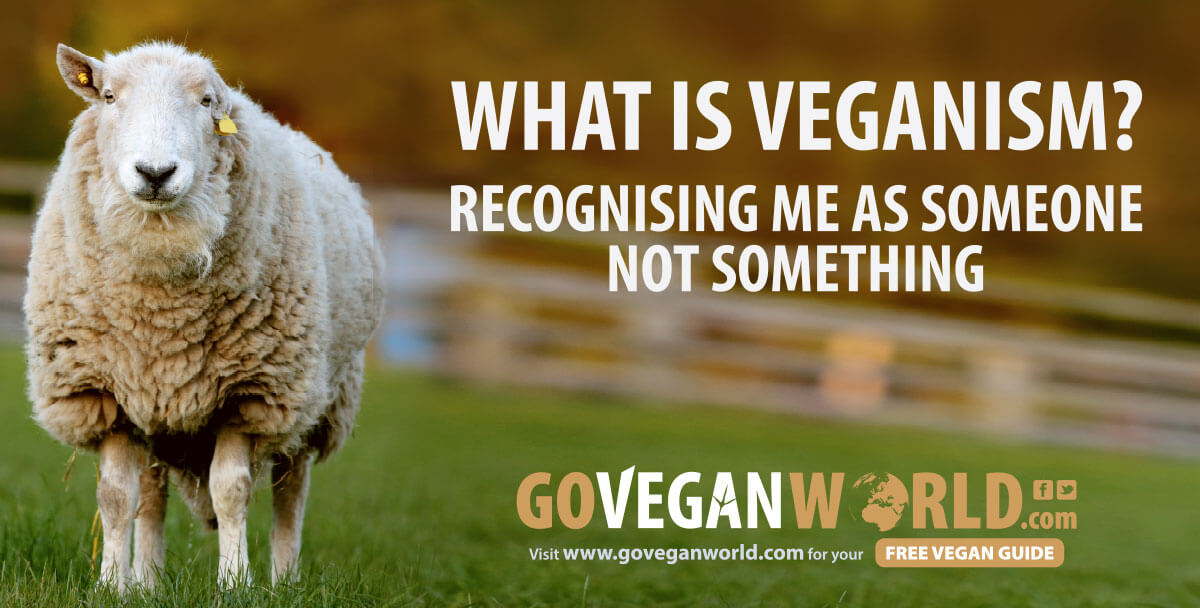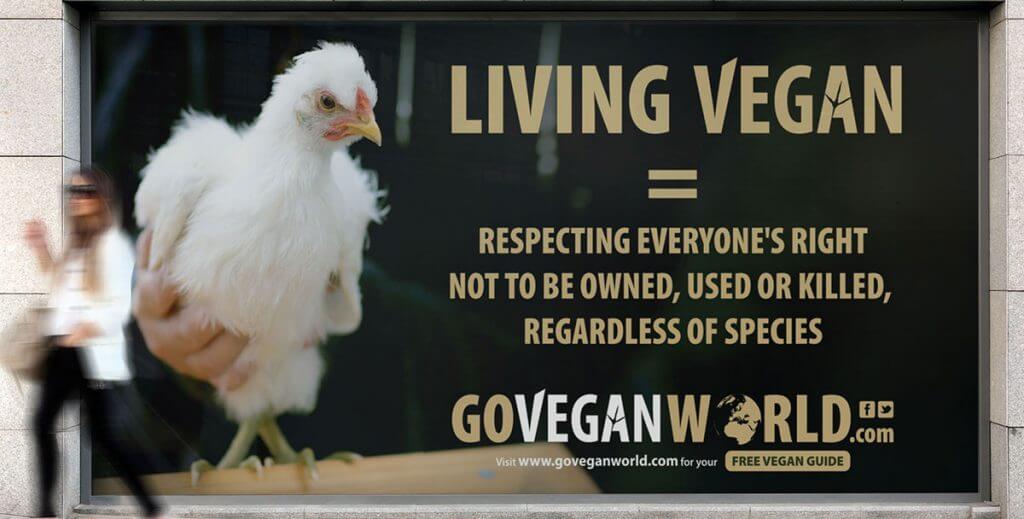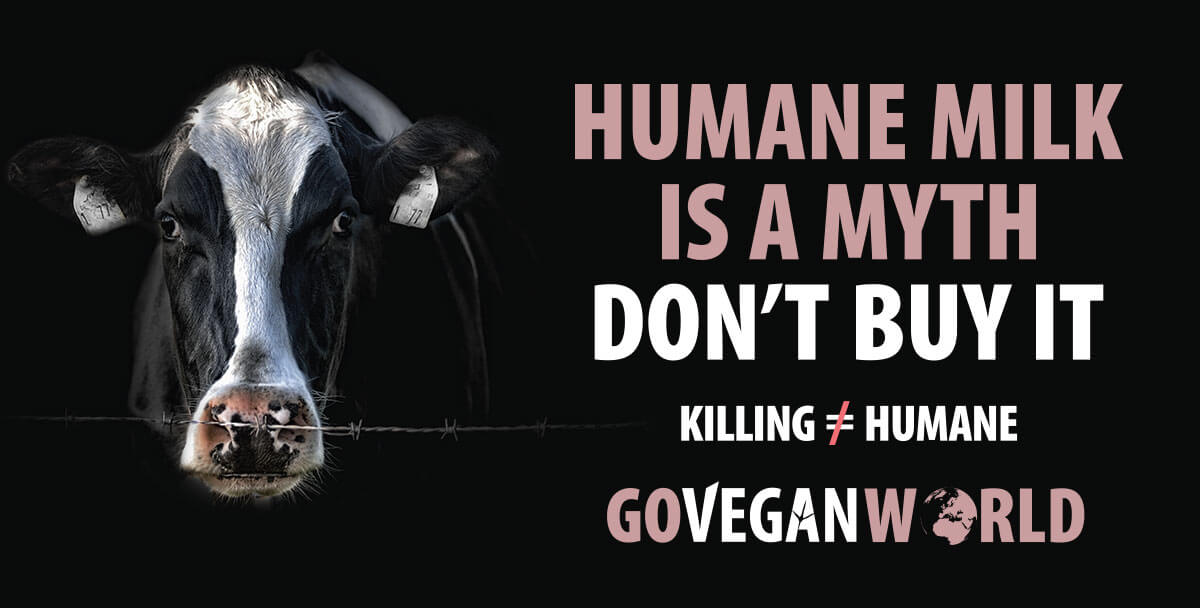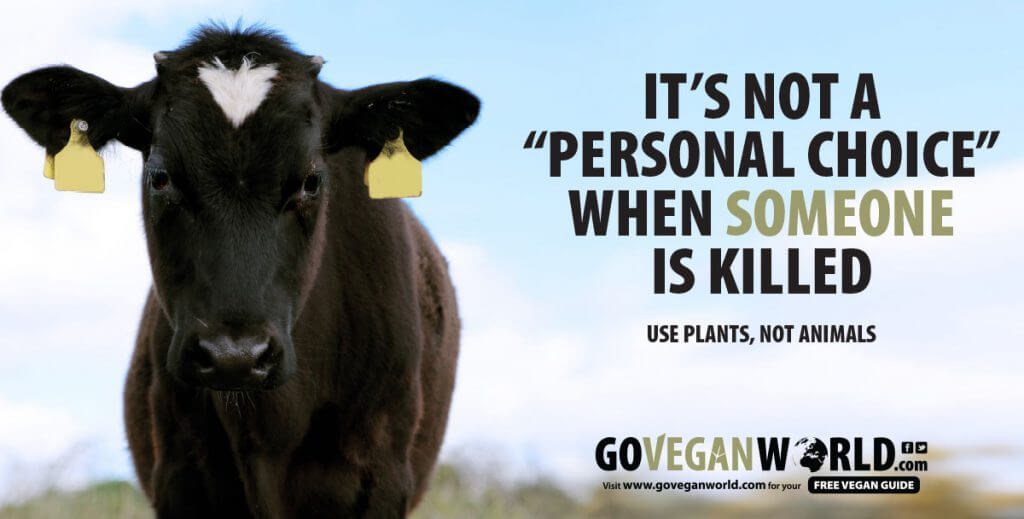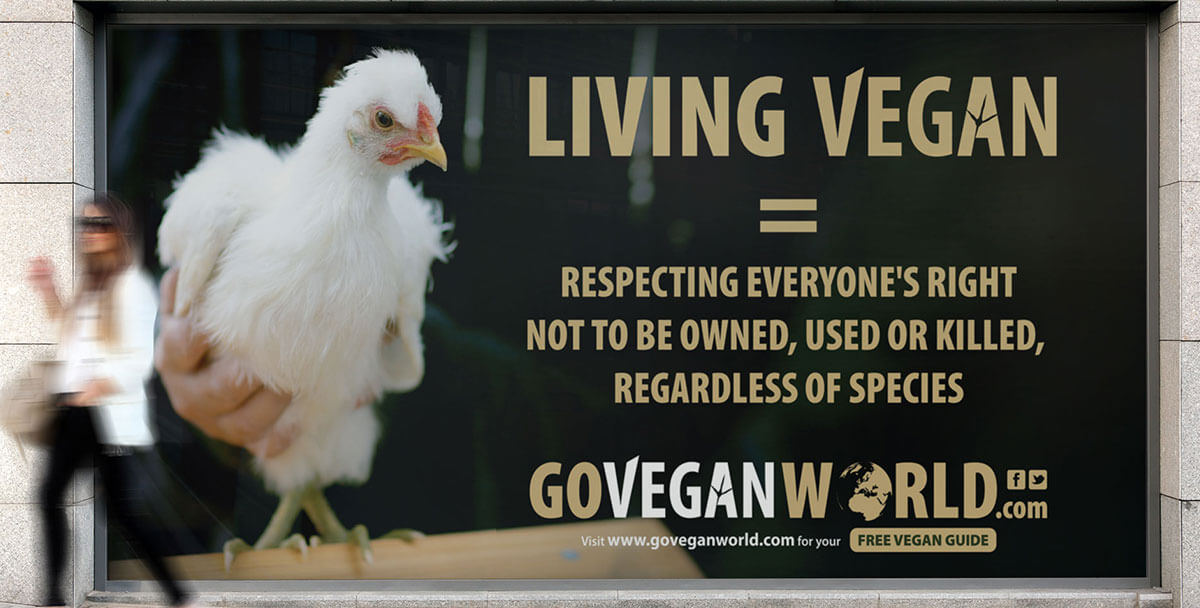
European Vegan Rights
In this section we consider relevant European human rights provisions, followed by European equality law provisions.
Human Rights
The European Convention on Human Rights and Fundamental Freedoms ("the ECHR") applies to everyone living in the 47 countries that are members of the Council of Europe. The Council of Europe is completely separate from the European Union and so membership of the EU is not relevant to whether or not the ECHR applies.
The ECHR contains very similar rights to those set out in the ICCPR, discussed above under International Human Rights, including the right to freedom of thought, conscience and religion, freedom of expression, assembly and freedom from discrimination.
The ECHR has a much more effective enforcement mechanism than the ICCPR, with claims taken through national court systems and then to the European Court of Human Rights ("ECtHR"). We therefore have the benefit of court interpretation of these rights and examples of their enforcement in specific situations, including in relation to vegans.
Freedom of Thought, Conscience and Belief
The ECHR sets out the right to freedom of thought, conscience and belief:
1. Everyone has the right to freedom of thought, conscience and religion; this right includes freedom to change their religion or belief and freedom, either alone or in community with others and in public or private, to manifest their religion or belief, in worship, teaching, practice and observance.
2. Freedom to manifest one's religion or beliefs shall be subject only to such limitations as are prescribed by law and are necessary in a democratic society in the interests of public safety, for the protection of public order, health or morals, or for the protection of the rights and freedoms of others. (Article 9)
The right to freedom of thought, conscience and belief means that we have an absolute right to hold or change our beliefs and convictions; no state or government is entitled to interfere with that under any circumstances.
We also have the right to put protected beliefs and convictions into practice. Beliefs or convictions are protected if they "attain a certain level of cogency, seriousness, cohesion and importance," are "sincerely held", "worthy of respect in a democratic society", and are not "incompatible with human dignity or the fundamental rights of others".
Veganism as a Matter of Thought, Conscience and Belief
As with the equivalent international right, a broad interpretation is given to "thought, conscience, religion and belief" and previous court decisions have confirmed that what is covered includes veganism, as well as pacifism, opposition to military service, atheism and agnosticism.
In W v UK a claim was brought by a prisoner who had not been permitted to be excluded from working in the prison print room, which he claimed was a breach of his vegan beliefs, as the inks used in the print room were not suitable for vegans.
In considering the complaint the European Commission on Human Rights considered whether or not the right to manifest a protected conviction or belief had been breached and found that: the right "protects the sphere of private, personal beliefs and the acts which are intimately linked to these attitudes"… and… "the vegan convictions with regard to animal products fall within the scope of [the right]." The UK Government had also not contested that veganism could concern "conscience" or "belief" within the meaning of the right.
The vegan conviction that it is wrong to use and kill non-human animals can be compared to convictions such as pacifism; they are not religions, they are fundamental moral convictions or philosophical beliefs. In the case of Arrowsmith v UK the Commission held that the Article 9 right to freedom of thought and conscience covered pacifism, as:
"pacifism is a philosophy and ….falls within the ambit of the right to freedom of thought and conscience. The attitude of pacifism may therefore be seen as a belief ('conviction') protected by Article 9."
In Bayatyan v Armenia the ECtHR held that:
"opposition to military service, where it is motivated by a serious and insurmountable conflict between the obligation to serve in the army and a person's conscience or his deeply and genuinely held religious or other beliefs, constitutes a conviction or belief of sufficient cogency, seriousness, cohesion and importance to attract the guarantees of Article 9."
Another example is the conviction that it is wrong to inflict physical violence upon children, as discussed below under Vegan Parents/Education.
Restrictions Prescribed by Law
For protected beliefs or convictions the state or government may only restrict our right to live according to our conviction if they can show that the restriction is: (1) provided for in law and (2) necessary for public safety, public order, health or morals, or the protection of the rights and freedoms of others. It must also be a proportionate restriction, going only so far as is necessary to achieve the aim.
Court decisions provide some guidance as to the extent to which the state may interfere with the manifestation of a protected belief. In the case of W v UK the Commission found that the interference with the right of the prisoner to live according to his beliefs was "prescribed by law," in that any requirement to work was contained in the prison rules which applied to all prisons. It also found that the rule was necessary to achieve a legitimate aim as the requirement to work pursued the aim of "preserving good order in the prison" and it was "necessary to have a system of allocation of work which is perceived to be fair and without favouritism and that as a result prisoners inevitably do not enjoy free choice of employment."
The decision provides a useful illustration of the exercise a court will carry out in determining if a restriction on the right to manifest protected convictions or beliefs is lawful. However, in that case there was uncertainty around whether or not the dyes were suitable for vegans, his vegan convictions were only one of his reasons for refusing the work and "relatively minor penalties" had been imposed on him for refusing to comply with the normal work regime. This can be contrasted with the consequences for someone if they are denied suitable food, for example, which is essential to survival.
Obligation to Respect, Protect and Fulfil Freedom of Thought, Conscience and Belief
There is also a positive obligation on the state (government) to "secure to everyone within their jurisdiction the rights" contained in the ECHR, which requires the government to respect the right of vegans to live according to their protected beliefs, protect our right to do so against limitations imposed on us by private entities and fulfil our right, ensuring we are able to live according to our protected belief, subject only to lawful restrictions.
Human rights obligations apply to states/governments and public entities. The government must therefore ensure that vegans are able to act in accordance with their vegan convictions in government-run entities such as hospitals, schools, prisons and care homes, and public bodies such as the parliament and local authorities (councils). The government also has an obligation to pass such laws as are necessary to ensure that vegans can live in accordance with their convictions in the private sphere, subject only to necessary and proportionate limitations which are prescribed by law.
Vegans avoid participating in the exploitation and killing of other animals. Our ability to do so is directly affected by the availability of non-animal-based alternatives for food, clothing, activities and non-food products.
Food Examples
For example, if a hospital does not provide suitable food a vegan patient will not be able to live according to their convictions and will be in the unconscionable position of having to breach their fundamental convictions or go hungry. The ECtHR has made it clear that where protected beliefs are manifested through food, the disadvantage caused by the refusal to provide suitable food is significant. That is unsurprising when we consider the importance of access to food.
In the case of Jakóbski v Poland, the ECtHR decided that the Polish government was required to ensure that a prison provided food that was suitable for a prisoner who did not eat meat due to his Buddhist faith, according to which he avoided consuming the flesh of sentient beings. The prison had failed to provide him with meat-free meals despite requests, and he had had to rely on food parcels. The court noted that the protection does not cover every act motivated by religion or belief, but that "observing dietary rules can be considered a direct expression of beliefs in practice."
The court concluded that Poland had not struck a fair balance between the interests of the individual and the community as a whole, because providing suitable food would not have caused significant disruption in terms of the management of prisons, nor in terms of the quality of meals generally or the financial impact. On balance, the government was in breach of the applicant's right to freedom of thought, conscience and belief.
A similar application was made by a prisoner in the case of Vartic v Romania. In Vartic, Romania argued that dietary requirements were not protected as a manifestation of thought, conscience and belief, and that even if they were and they this had been breached, there was no significant disadvantage to the applicant. The ECtHR disagreed. As in Jacobski, the court found that it would not be unduly disruptive or burdensome to provide food that was suitable, particularly given that the prison offered various other special meals. Therefore the prison authority had breached the rights of the prisoner by not providing appropriate food.
These two decisions are very useful in terms of predicting how a court would consider a failure to provide food that is suitable for vegans in public entities, such as prisons, hospitals and schools. The right to live according to the vegan moral conviction can therefore be relied upon in challenging failure to provide vegan food in government bodies.
Non-Food Examples
Vegans avoid participating in the commodification, exploitation and killing of nonhuman animals in any way, and not only in relation to food. If requests for accommodation from vegans are refused a public entity must justify the failure to enable vegans to live according to their conviction by demonstrating that doing so would cause too much disruption and/or be too heavy a burden, financially or otherwise, such that it would be detrimental to overall interests. If it is possible to meet a legitimate objective while accommodating the request of vegans, and meeting such requests presents no overriding problems, then the public entity is unlikely to be able to justify refusing to meet the needs of vegans.
For example, vegans in public employment, such as the police service or fire service may request alternatives to standard issue uniform items that are made from animal skin. If an employee requests a non-animal version of a standard issue item and it is reasonably straightforward to obtain that for them, without causing a lot of disruption or disproportionate additional cost, it would be difficult for the public employer to justify refusing that request. A court could take account of the fact that other employers manage to provide vegan alternatives.
The same exercise could be carried out for other non-food matters. For example, a vegan school pupil may request exemption from a requirement to dissect the dead bodies of animals. If a request is refused the school would need to justify that refusal on the basis that it would be unduly disruptive or burdensome to provide an alternative. In considering whether or not the school/local authority had carried out the balancing exercise appropriately, the court could take into account: the necessity of the procedure to achieve an educational objective, the availability of alternatives and the fact that other schools/local authorities have been able to provide alternatives.
Vegan Parents/Education
Article 2(2) of Protocol 1 of the ECHR provides:
"In the exercise of any functions which it assumes in relation to education and to teaching, the State shall respect the right of parents to ensure such education and teaching is in conformity with their own religious and philosophical convictions."
Signatories to the ECHR have an obligation to respect and ensure this right, including by taking such steps / passing such laws as are necessary to give effect to it.
This parental right was relied upon in a seminal case which led to the abolition of corporal punishment in the UK and Ireland. In the case of Campbell and Cosans v The UK, two parents who held the conviction that it was morally wrong to inflict violence on children challenged the requirement that they submit their children to the right of a school to administer corporal punishment. They asserted that this was a breach of their Protocol 1 right to an education for their children that was in conformity with their philosophical convictions.
The UK Government contested that the applicants' views on corporal punishment amounted to "philosophical convictions." The court noted that:
"In its ordinary meaning the word "convictions", taken on its own, is not synonymous with the words "opinions" and "ideas" … it is more akin to the term "beliefs" (in the French text: "convictions") … the expression "philosophical convictions" in the present context denotes, in the Court's opinion, such convictions as are worthy of respect in a "democratic society" … and are not incompatible with human dignity"…
"The applicants' views relate to a weighty and substantial aspect of human life and behaviour, namely the integrity of the person, the propriety or otherwise of the infliction of corporal punishment and the exclusion of the distress which the risk of such punishment entails. They are views which satisfy each of the various criteria listed above; it is this that distinguishes them from opinions that might be held on other methods of discipline or on discipline in general."
As discussed above, the vegan philosophy or moral conviction has also been held to satisfy this test.
The right to an education in conformity with parental philosophical convictions extends to the entirety of the education process. The court noted that:
"the education of children is the whole process whereby, in any society, adults endeavour to transmit their beliefs, culture and other values to the young….. [the right] is binding upon the Contracting States in the exercise of 'each and every' function that they undertake in the sphere of education and teaching, so that the fact that a given function may be considered to be ancillary is of no moment in this context".
The UK argued that even if the convictions were protected, it had respected them by introducing a policy of gradual elimination of corporal punishment, which it said would strike the right balance between the opinions of supporters and opponents. The court found that the policy of gradually phasing out corporal punishment was not sufficient to give respect to the parental rights, as required by Protocol 1. "Respect" required more than taking into account or having regard to protected beliefs, it set up a positive obligation on the state which was not discharged by striking a balance between competing views.
The court referred to the prior decision in Kjeldsen, Busk Madsen and Pedersen v Denmark, in which the Danish government had argued that the right only implied a "right for parents to have their children exempted from classes offering 'religious instruction of a denominational character.'" The court disagreed, finding that: "It enjoins the State to respect parents' convictions, be they religious or philosophical, throughout the entire State education programme." While it is not for a court to set curriculum content and while the right "does not prevent States from imparting through teaching or education information or knowledge of a directly or indirectly religious or philosophical kind":
"the State… must take care that information or knowledge included in the curriculum is conveyed in an objective, critical and pluralistic manner. The State is forbidden to pursue an aim of indoctrination that might be considered as not respecting parents' religious and philosophical convictions. That is the limit that must not be exceeded."
The ECtHR guide to Protocol 1 Article 2 also states that:
"Although individual interests must on occasion be subordinated to those of a group, a balance must be achieved which ensures the fair and proper treatment of minorities and avoids any abuse of a dominant position."
Just as the conviction that it is wrong to inflict violence on children is a protected philosophical conviction in terms of the parental right to ensure children are educated in accordance with their convictions, the vegan conviction that it is wrong to exploit and kill other animals should also be recognised as protected in relation to this right, as it has been in other contexts. This could be very important for vegan parents in terms of challenging education that fails to respect their conviction that other animals have rights, when education is not carried out in an objective, critical and pluralistic manner.
For example, when a school becomes a participant in an activity that involves the use of animals as commodities, such as through hatchery programmes, dissecting their bodies, or by bringing animals onto school grounds to "rear them for slaughter", it could be argued that the school is not teaching in an objective, critical, pluralistic manner as they are themselves participating directly in the use and killing of animals as part of the curriculum.
This could also be argued where schools invite people in who are involved in the animal use industries, to talk about their use of animals and promote the products of animal exploitation. Arguably this is rarely, if ever, done in an objective or pluralistic manner. Arguably, a critical assessment would require, at a minimum, equal time and space for the vegan perspective, and care taken to challenge misinformation and baseless undermining of plant-based nutrition. It may not be possible to avoid biased perspectives when inviting business people into schools, as they are, after all, business people with products to sell. It is the duty of our schools/education authorities to consider if they can include these activities while meeting their obligation to provide education in an objective, critical and pluralistic manner.
School trips to places where animals are used and/or killed may also be open to challenge. At the very least vegan children/children of vegan parents should be provided with an alternative activity.
Our blog on the parental right to education that is respectful of veganism and animal rights looks at this in more detail.
Other Relevant Rights
The ECHR also contains the related rights to
– freedom from discrimination, including on the grounds of "political or other opinion";
– freedom of expression (to seek, receive and impart information and ideas is a fundamental human right); and
– peaceful assembly.
Interference with these rights is only permitted if set out in law, necessary to achieve a legitimate aim such as public safety or for the protection of the rights and freedoms of others, and any restrictions must be proportionate, going no further than is necessary.
The right to freedom of expression is very important in relation to our vegan educational ad campaign. We gave a talk on Defending our Ads From Challenge at VegFest London 2019.
Right to Life / Healthy Environment
In the absence of a standalone express right to a healthy environment in European law, a number of environmental claims have been taken based on the right to life and the right to respect for privacy and family life. European courts have found that environmental harm caused by state action or a failure to act may breach these rights where it severely impacts on a person's well-being or home life. It may be possible to use these rights along with international recognition of environmental rights (on which see International Vegan Rights) to make claims related to environmental destruction caused by animal use. This is an evolving area with a number of climate crisis related cases underway in various jurisdictions.
ECHR Obligations on States / Governments
The ECHR obliges signatories to "secure to everyone within their jurisdiction" the rights and freedoms set out in the ECHR, thereby placing a positive obligation on governments to ensure that the rights are provided for, and not only a negative obligation to refrain from interfering with those rights. Therefore, there is a positive obligation on countries signed up to the ECHR to ensure that individuals within their country have freedom of thought, conscience and belief, including the right to act in accordance with those beliefs, subject only to such proportionate limitations as are prescribed by law and are necessary in a democratic society.
Unlike the international treaties, the ECHR does provide a remedy directly to individuals. Under Article 34 of the ECHR individuals, non-governmental organisation and groups of individuals can apply to the ECtHR in Strasbourg, claiming that their ECHR rights have been breached by their government. Before doing so, the individual must exhaust local remedies, by taking a claim all the way through their national courts/tribunals until they have no further recourse to a remedy within their country.
The Charter of Fundamental Rights of the European Union ("the Charter")
Whereas the ECHR applies to all countries who sign up to it and is enforced by the ECtHR, the Charter applies to all member states of the EU and is enforced by the European Court of Justice ("ECJ"). It has direct effect in member states, meaning that it applies to public entities even if the national government does not take steps to incorporate it into national law.
The Charter contains all of the rights set out in the ECHR plus additional rights lifted from the European Social Charter and other rights. The Charter can be relied upon within member states whenever a matter of EU law is at issue. National courts are to interpret national law as compatible with the Charter, in so far as it is possible to do so, and if that is not possible they are to dis-apply national law. The rights in the Charter are more extensive than those in the ECHR in some important ways, for example it contains a free-standing right to freedom from discrimination, whereas prohibited discrimination under the ECHR must relate to another protected right. It also contains rights related to the environment.
The rights contained in the Charter are also applicable to the EU institutions and EU law can be struck down as being in conflict with EU fundamental rights. The Charter also contains principles of interpretation, which can be useful in advancing arguments about the scope of rights and how they ought to be interpreted in particular cases.
The Charter may be important where advocating for vegan rights in countries that are members of the EU.
Equality Law
In addition to the human rights provisions set out above, the EU has specific regulations on equality, which afford additional protections to vegans. These protections expand upon the human right to freedom from discrimination.
There are a number of EU anti-discrimination directives which put in place specific obligations in relation to particular protected characteristics in particular contexts. In terms of protection from discrimination on account of fundamental beliefs or convictions, Council Directive 2000/78/EC laid down "a general framework for combating discrimination" in the sphere of employment on grounds including religion or belief. This is known as the Equality Framework Directive ("the Directive"). The rights flowing from the Directive apply to all employers, including private employers, and providers of vocational training.
The separate EU equality directives related to race and sex extend the anti-discrimination protections beyond employment, to cover education, social care, health, housing and goods and services. A proposal has been made for a further directive that would similarly extend protection from discrimination on account of religion and belief, as well as for disability, age and sexual orientation, to cover services, education, health, housing, etc, but this has not yet been agreed.
The Directive refers to "religion and belief" as a protected characteristic. This is to be interpreted consistently with the ECHR and therefore veganism ought to be protected, as it us under the ECHR.
The Directive requires EU states to prohibit the following in relation to vegans (and others):
a) Direct Discrimination
Direct discrimination occurs where someone who is vegan is treated less favourably than another person who is not vegan, because they are vegan. For example, if someone places a job advertisement in which vegans are excluded from applying, or if a vegan is told they cannot attend a work function because they are vegan, they are examples of direct discrimination.
There is an exception for direct discrimination: it is permissible to allow a difference of treatment based on a protected characteristic, such as a protected belief, where:
- by reason of the nature of the particular occupational activities concerned, or of the context in which they are carried out, such a characteristic constitutes a genuine and determining occupational requirement,
- provided that the objective is legitimate and the requirement is proportionate.
b) Indirect Discrimination
Indirect discrimination occurs where an apparently neutral policy or practice puts someone who is vegan at a disadvantage compared with non-vegans, due to their vegan convictions. An example would be an employer providing free lunch to staff but failing to provide anything suitable for vegan staff.
Indirect discrimination is permissible only if the policy or practice is objectively justified, which means the employer can show that the practice is a proportionate means of achieving a legitimate aim.
In the example of an employer providing a free lunch but failing to provide anything suitable for vegans, the employer would have to show that providing food which did not include food suitable for vegan staff was a proportionate means of achieving their aim of providing to staff. That would require them to show that there would be a negative impact on their business and/or other staff if they did include food suitable for vegans. The decision in Jakóbski v Poland referred to above gave an illustration of how a court might assess this; it should be difficult for employers to justify a refusal or failure to provide suitable food for vegan staff.
c) Harassment
Harassment is unwanted conduct related to a person's vegan beliefs which has the purpose or effect of violating the dignity of that person or of creating an intimidating, hostile, degrading, humiliating or offensive environment for that individual. Harassment can involve teasing, name calling, abusive comments, sketches or images, offensive gestures, jokes or facial expressions, and can cover written comments including by email or on social media.
d) Victimisation
Victimisation is where someone is treated adversely as a result of having made a complaint in relation to discrimination or harassment. You are victimised if, when you have raised a complaint about the way you have been unfairly treated, you are made to feel as if you are a 'trouble maker' or you are singled out in some other way, such as being left out or denied certain privileges from which others benefit.
Conclusion on European Vegan Rights
Vegans living in a country that is a member of the Council of Europe will be able to rely on the rights set out in the ECHR, before their own national courts and by application to the ECtHR. Vegans in countries that are also members of the European Union will also be able to rely on the Charter and the Equality rights set out in the Directive. Some countries have gone further than the rights set out in the Directive, such as the UK, which we discuss in the following section.
In this talk Go Vegan World’s Legal Counsel outlines the main legal rights that apply to vegans living in the UK and Ireland, under human rights and equality law, and how these rights can be used to defend against discrimination and push for better provision.
Further information is available on the following pages:

